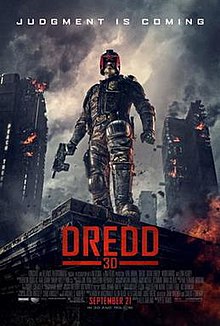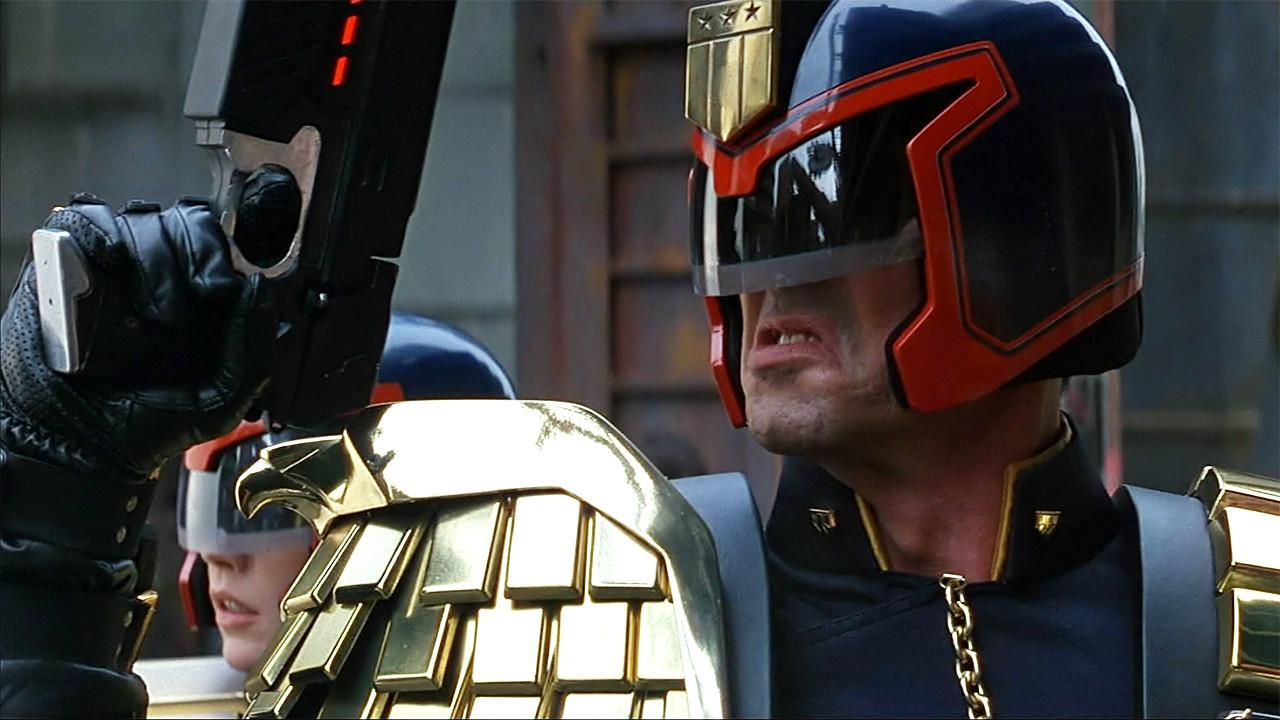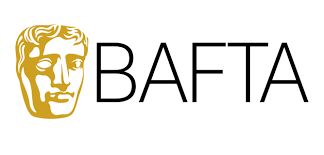British Academy of Film and Television -
The British Academy of Film and Television, most commonly referred to as 'BAFTA' is an independent charity that supports, develops and promotes the art forms of the moving image - film, television and games.
British Board of Films Classification -
The British Board of Films Classification, most commonly known as BBFC, is an independent, non-governmental body which classifies and censors films and video as well as computer and console-based games released in the UK.

British Film Institute -
The British Film Institute is the official UK agency for international and cultural relations. Its film department promotes new British films internationally through festivals and showcases.

British Council -
The British Council is or was a government backed leading agency for films in the UK. Its job was to ensure that the economic, cultural and educational aspects of film were effectively represented at home as well as abroad.

UK Film Council -
The UK Film Council promotes understanding and appreciation of Britain's rich film and television heritage and culture.

The Main British Production Companies -
The main or most noticeable and well known British production companies are:
- Film 4
- Working Title Films
- BBC Film Network
- Momentum Pictures
All of the production companies listed above have produced many different pieces of film or TV Drama's.
Film 4 -
Film 4 is a digital television channel available in the United Kingdom and Ireland, owned and operated by Channel Four Television Corporation, that screens films. Film 4 has produced highly popular films including The Inbetweener's Movie, This Is England, The Iron Lady and 127 Hours.
Working Title Films -
Working Title Films is a British film production company, based in London owned by Universal Studios. The company was founded in 1983 and produces feature films and several television productions.
Working Title Films have produced highly successful films such as Billy Elliot , Bridget Jones' Diary, Hot Fuzz and Paul.
BBC Film Network -
BBC Films is the feature film-making arm of the BBC. It has produced or co-produced some of the most successful British films of recent years, including Alan Partridge: Alpha Papa. The BBC Film Network co-produces around eight films a year, working in partnership with major international and UK distributors.
Momentum Pictures -
Momentum Pictures (also known as Momentum) is one of the leading independent motion picture distributors in the UK and Ireland and releases approximately 20 theatrical films a year, with several DTV releases. The company has released films such as Limitless, The Kings Speech, The Season Of The Witch and The Woman In Black.
Who dominates the UK Film Industry ?
Although they are all very successful companies, only two stand out. Working title films and Momentum pictures have produced some 'corkers' over the last 10 years. Both have collaborated with bigger companies or companies which they are owned by such as Universal Studio's, but both remain at the top of the British Film Industry.
However, Working Titles appears to be the more successful or popular with not only British audiences, but worldwide ones, as it has produced the likes of Notting Hill and Bridget Jones and remains the best British production company of its generation, ranking as one of the world’s (not just the UK’s) leading producers. The company is backed by Universal Pictures through to 2015 thanks to a new first look deal which funds its projects.
Working Title Films are trusted by Universal to deliver films which match a British sensibility with Hollywood production values. Working Title has made nearly 100 feature films since 1983 that have grossed over $5 billion at the box office, within that time they have seen their films pick up a whopping six Oscars and 30 Bafta awards.
How to qualify as a 'British Film' -
To qualify as a British Film the project HAS to include 3 of the following 6:
- A British Director
- A British Producer
- A predominantly British cast
- A British Production Company
- A subject matter that informs the audience on the British experience
 Does DREDD Qualify As A British Film?
Does DREDD Qualify As A British Film? DREDD does in fact qualify as a British film, the reasons for this are clear. First of all, the film was written, produced and directed by Englishmen, Pete Travis (director) and Alex Garland (producer and writer) these two men are in fact are both from the south of England. DREDD was also produced at the London based production company 'DNA Films.' The distribution of DREDD took place at 'Entertainment Film Distributors' which is located in London as well as Lions Gate Entertainment in California.
Therefore the movie itself qualifies as a British made film as it uses 4 out of the possible 6 points needed to be branded as a British Film.
How do British Films Attract Audiences?
For a British film producer this is always the first question that needs to be asked. Once a possible idea is in place, the producer needs a clear idea on what style of film he/she is going to make, whether it be comedy, action-thriller, Sci-fi or historical etc. They also need to decide what type of market they are aiming their film at - whether it be UK based or Global.
For a successful UK film, many producer's would most likely go down the road of comedy, as us Brits love a laugh! They may also get a well known actor or comedian on board in order to make the film noticeable and stand out. However, this style of film will most probably appeal to only a British audience and may not be very popular on the Global level e.g. 'The Wedding Video,' this film is a 2012 British comedy which was only released in Britain and features well known presenters/comedians Rufus Hound and Robert Webb, although the film was fairly successful in Britain, it would have failed miserably if it had been released to the global market, as people outside of the UK may not, for instance, understand the humour or even know who either of the 2 main characters are.
However, the producer may choose to make a more sophisticated style of film and intertwine comedy into it to show the British style of life e.g. Bridget Jones' Diary. This may appeal to both British and Global audiences as it is a film which portrays what British life is all about, which is what the Global market are looking for in a British film. It may also be successful if it does not feature an actor or comedian only Brits would recognise or find amusing, therefore it may appeal to a larger audience and be more successful.
The producer may also be enticed by the idea of a historical British film, as UK and Global audiences are always fascinated about the nations famous history. To make a historical film noticeable on the worldwide market, the producer would have to get a 'big name' actor on board.
How are British films distinctive compared to American blockbusters?
It is a well known fact that most if not all British films have a lower budget than American blockbusters. This may sound like a bad thing, but many a critic may have a different argument. A lot of critics believe that British films are often better productions because of the meaning, story line and humour that appear within the films. Although American blockbusters may have these components, they may not need to use or emphasise them as much as British films because they have a substantial amount of money to spend on things such as special effects and A list actors. British films do not tend to have these luxuries and so producers and directors involved with British films need to make the story line and overall meaning of the film stand out to the audience in order to replace the lack of special effects or/and A list actors. A lot of the time this has a positive affect on the audience, as in many cases, the audience would rather have experienced a hidden meaning or a story which makes them think, rather than watching two hours of endless explosions and fighting etc.
Audience Types -
Mainstream -
This audience type is most likely to watch only 'Hollywood' style blockbusters.
Mainstream Plus -
This audience type generally only watches mainstream 'Hollywood' style films, but occasionally venture out into the world of film and watch something less mainstream.
Aficionados -
This audience type tends to watch a mixture of different films. These include major foreign language titles and can be encouraged to become even more adventurous in their viewing choice.
Film Buffs -
This audience type prefers films which include a more extreme, violent and has a challenging subject or story line.
Which Audience type would want to view DREDD?
DREDD is a film which has the potential to be categorised into three of the four categories above. Firstly, the film was released on the global scale and so qualifies as a mainstream film, as audiences all over the world were able to view it in cinema's. However,the film was not as successful as many people had hoped and so lost it's 'Mainstream' title, as audiences lost interest very quickly.The film is also violent, has mature themes, such as drug taking, and is very different and somewhat unique compared to other 'sci-fi' or futuristic films which have recently been released, therefore it may also qualify as both a 'Mainstream Plus' - as it is a film different from the average 'Mainstream film.' DREDD could also be placed into the 'Film Buffs' category because of the violence and mature 'non mainstream' themes such as drug usage etc.
| A 'gory' scene from DREDD |
Box Office Figures And The British Film Industry -
Statistics clearly show that British films are less popular when it comes to the Box office. Purely British films (films which have not collaborated with major US film companies) make a substantial amount less than US films. Not only do they make less money, but they are shown in a lower number of cinema's, are only shown for a short amount of time e.g. 1-2 weeks and therefore make a lower overall gross profit. However, for British films which have collaborated with film companies from abroad e.g. DREDD, the story is very different. DREDD was shown in 415 cinema's on the weekend of it's release and therefore has made an overall total profit of £1,049,345, a vast amount more than a purely British film.
This comparison suggests that audiences are influenced by a number of different factors, these include -
- the distributor
- country of origin
- overall gross profit
Film audiences around the globe will most often be attracted to a film if they can recognise either the distributor as well as the country of origin. Audiences will most commonly be attracted to a film which has been distributed by a major distributor e.g. Warner Bros. They may also pick one film over another depending on where the film has originally come from e.g. Audiences may choose to watch an American film over a British film etc.
These facts suggest that the British film industry is nothing but a mere shadow of the US film industry and will never be able to compete on a level playing field. The British Film Industry is powerless when it comes to the box office, as worldwide audiences are simply more attracted to films which include famous names, whether it be the distributor, the actors, or even the director, rather than basic 'simple' productions which rarely include any of these. This of course affects the overall gross profit and often leaves British made films miles behind the American made blockbusters.
DREDD -
DREDD is a 2012 British-South African science fiction action film, which was directed by Pete Travis and written and produced by Alex Garland. The film is based on the 2000 AD comic strip Judge DREDD.
It was announced in December 2008 that a remake of the 1995 film 'Judge Dredd' was scheduled to be released between 2011 and 2012. The production was given the 'green light' in 2010 and filming commenced in Johannesburg later that year.
Distribution -
DREDD was distributed by London based 'Entertainment Film Distributors, as well as Lionsgate entertainment which is based in Canada. DREDD was advertised mainly on viral websites in order to save money and get it noticed by virtually a worldwide audience.
Writing: Story-line and script -
| DREDD escaping from an explosion |
Garland decided to rewrite the script and claimed that the story needed to be more focused and simple. He instead considered adapting some of the notable Judge DREDD story lines, including 'Democracy' and 'Origins' , but he decided to avoid these lengthy tales in favour of a shorter, 'day in the life' story about DREDD and his job in Mega-City One.
When developing the character of DREDD, Garland tried to closely follow the comic-book character, who undergoes only small personality changes over a lengthy period of time. He said: "I didn't think DREDD could have a great epiphany, but there is definitely a change in him over the course of the movie. He makes a very clear statement at the beginning of the film which he then contradicts at the end. That’s about as far as the shift goes."
Budget -
The production of DREDD was given a budget of $45 million. A vast amount of this money was spent on converting special effects into 3-D, as well as the wages of actors and the creation of sets and costumes etc.
 |
| DREDD and Judge Anderson during the 'drug bust' |
Box Office -
On the weekend of it's release, DREDD failed miserably and earned only $23,153,028 from international markets and $13,414,714 from America, making a total of $36,567,742. In the UK, DREDD grossed £1.05 million ($1.7 million) from 415 cinemas during its opening weekend. This made it the weekend's 'number-one film'. It was also the first film to be restricted to audiences over 18 years of age to do so since Saw 3D in 2010.
In its second weekend, the film placed number five, earning just £769,381. DREDD was mainly shown in 3D in the UK, and 2D screenings were limited as the distributor denied cinemas' requested for 2D versions if the film. The decision was considered to have limited the film's audience where 2D was their preferred option. DREDD earned a total of just $6.9 million in the UK.
Director and Actors -
 |
| Karl Urban A.K.A DREDD |
To play DREDD'S assistant and 'rookie' cop 'Judge Anderson', Olivia Thirlby was drafted in. The 27 year old New Yorker had not appeared in a blockbuster until DREDD and din't manage to impress, as she was not nominated for any awards after the film was released.
DREDD also starred Lena Headey as 'Ma-Ma' the creator and dealer of the drug 'Slo-Mo' Headey is also another actress who failed to win any awards in her entire career. The fact the film has no big names or 'A list actors' may be another reason why the film didn't make as much overall profit as it expected to. If the film did feature a so called 'A list' star, then audience's across the globe may have been more attracted and tempted to go and watch the film.
Critical Reception -
The film received positive reviews from many critics and it gained a 78% approval rating from 147 critics, with an average rating of 6.5 out of 10 according to the website Rotten Tomatoes, which described the film as "An Action packed film, fueled by bombastic violence and impressive special effects, rooted in self-satire and deadpan humor, DREDD is a rare example of a remake that actually works."
Meta-critic provides a score of 59 out of 100 from 29 critics, which indicates "mixed or average" reviews. Cinema Score polls reported that the average grade moviegoers gave the film was a "B" on a scale of A+ to F.
Reasons for lack of success -
There are many reasons why DREDD was not as successful as first thought. These are:
The original film -
 |
| Sylvester Stallone as the original Judge Dredd, 1995. |
3D -
DREDD was released mainly in 3D, something many film fanatics are not fond of, because of the glasses etc. If the film was released in 2D with the option of 3D it would most likely have been 10 times more successful and attracted bigger audiences, therefore making a large amount more.
Lack of 'A list' actors -
As mentioned before, DREDD did not include any 'Big Name' or 'A list' actors and so lost the 'wow factor' as well as immediate popularity that films get when they star the likes of Tom Hanks, Tom Cruise, Robert De Niro etc. Big names like these automatically make the audience believe that the film will be worth watching, however as DREDD did not have this, audiences may not have thought of it as 'one to watch.'
Awards -
Although DREDD was given positive ratings by many critics, it did not manage to pick up a single award.
Technology used In DREDD -
DREDD was filmed with 3D and Red X camera's in order to release the film in 3D worldwide. Also, the majority of the film includes the 'Slo-Mo' drug, and so many special effects were needed to create the feeling that time was moving slowly. Also, throughout the film, many gun shot fight/action scenes take place, The 'Slo-Mo' effect is used here to create a fight scene which has never been seen before, the 'Slo-Mo' scene works perfectly at this point in the film, as DREDD manages to shoot a criminal through the side of the face, the 'Slow-Mo' shows the bullet piercing the skin and the blood bursting out, but does it in a way which does not appear gory or disgusting and makes the scenes viewable rather than un-viewable.
My opinion on DREDD -
DREDD. An action packed, realistic, dark view of the future world. I was put into a trance like state as soon as the film began. The film begins with an exhilarating car chase and immediately grabbed my attention. from there on i was gripped and was eager to carry on watching. To me, the special effects used throughout the film were spectacular, as they allowed me to experience how the characters were feeling when they had taken the 'Slo-Mo' drug. Also the 'Slo-Mo' effects allows 'gory' scenes to appear viewable as they appear somwhat elegant. When the 'Slo-Mo' effect is used, it puts the specific scenes onto another level, (especially the gun fight) as i have never seen a fight scene filmed in this way. It was also somewhat calming which added to the excitement and overall atmosphere.
In my opinion DREDD was a fantastic film, however, it could have been even better. I would have liked to see a 'Big name' actor appear in the film, just to give it the 'edge' it needed to go from a good film to a great film. I also believe that it would have been much more successful if it had been filmed mainly in 2D as it is a well known fact the 3D aspect put many people off.
How dominant is the British Film Industry?
In this modern era, the British Film Industry is nothing more than a mere shadow compared to the likes of the American Film Industry. The main problem for British film makers is of course the lack of money, equipment, big name actors and big name directors. Although some British films have been highly successful, when it comes down to total gross profit, America wins hands down every, single time. Even when 'British' films are highly successful e.g. The Kings Speech, the whole project is mostly funded by America. This may suggest that British films have no place in the film Industry and that us Brits should just give up, but everybody in the Film Industry -including America - know the world would not be the same without British films at the cinema.


No comments:
Post a Comment